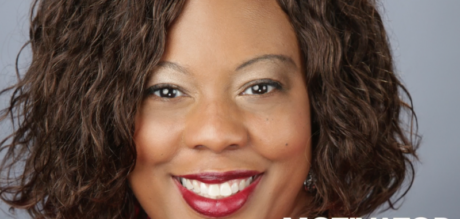As we closeout February, a month that celebrates two things that I hold close to my heart—Black History and Love– I think it apropo that I focus on a combination of the two: Black Love.
Black Love comes in many forms and fashions; many shapes and sizes. But for this column, I am going to focus on one type of Black Love: the “say my name, say my name” kind of vibe that reverberates in your spine before bursting in the air like a cacophony of bubbles when you hear your loved one’s voice summoning you. The kind of Black Love that slips through the fork as you take that first bite of homemade goodness or slip underneath a blanket thrown carefully over your shoulders with great tenderness and care.
This kind of Black Love is rarely displayed by Black characters in main stream media, at least not consistently. Granted, there have been a few occasional blips on the cinematic scene, like two of my personal favorites, “Love Jones” (1997) and “Love and Basketball” (2000), where the characters’ love stories leapt off the screen right into the hearts of viewers. There’s “The Best Man” (1999), “Jason’s Lyric” (1994), “Just Wright” (2010) and if you want to go old school with it, “Mahogany” (1975). I can still hear that line from the always debonair Billy Dee Williams to his character’s love interest in the film, Diana Ross. “Success is NOTHING without someone you love to share it with.” Classic. Black Love at its finest. I’ll even count the movie “Ray” as a Black Love story, given the in-depth manner in which they showcased the deep love shared between husband and wife, as depicted by the uber-talented panoramic pair, Jamie Foxx and Kerry Washington. Theirs was a love that was sweet and savory, wrapped in some bumps and bristles, in other words—REAL Love. I appreciated the authenticity of the portrayal.
But these isolated images are not enough. Just as Black Lives Matter, Black Love Lives Matter too, and it’s important that they are shared and showcased, particularly on the big screen. Research shows that people imitate what they see on television or in films, and Blacks are some of the highest consumers of media. A 2015 Nielsen study states, “African-Americans have a diverse approach to receiving content and information—they fully engage and connect through various mainstream and niche media outlets and platforms, and they consume more content than other groups on all fronts.”
When you juxtapose that fact against what the Motion Picture Association of America says is “an average of 600 movies [that] are created in the US every year,” with only roughly 15 or so in the past 40+ years depicting Black Love—Houston we have a problem. But hopefully not one that the Love Doctor can’t fix. As the newly released “Black Panther” film demonstrates, a film featuring amorous affection between a young Black couple, T’Challa (Chadwick Boseman) and Danai Gurira ( Lupita Nyong’o), Black Love can be a core theme in a film and still break box office records around the globe. It is also a story line that is embraced and celebrated by the Black community as well.
I am preparing my students to uncover and illuminate authentic love stories, with a primary focus on the WHO and not the HUE. However, my personal interest lies in showcasing Black Love. It’s an issue I’m tackling one heartbeat at a time.
Shanita Baraka Akintonde is an associate professor at Columbia College Chicago. She is also President and Chief Visionary Officer of Creative Notions Group, a professional speaking and consulting company. Professor Akintonde will release two books, Hear Me ROARR and The Heart of a Leader in 2018. She’s for hire to inspire and will gladly share her rates for each of her uniquely crafted workshops, keynote addresses and/or seminars. Contact her at sakintonde@colum.edu. Follow her @SHAKINTONDE and www.linkedin.com/in/shanitaakintonde/




